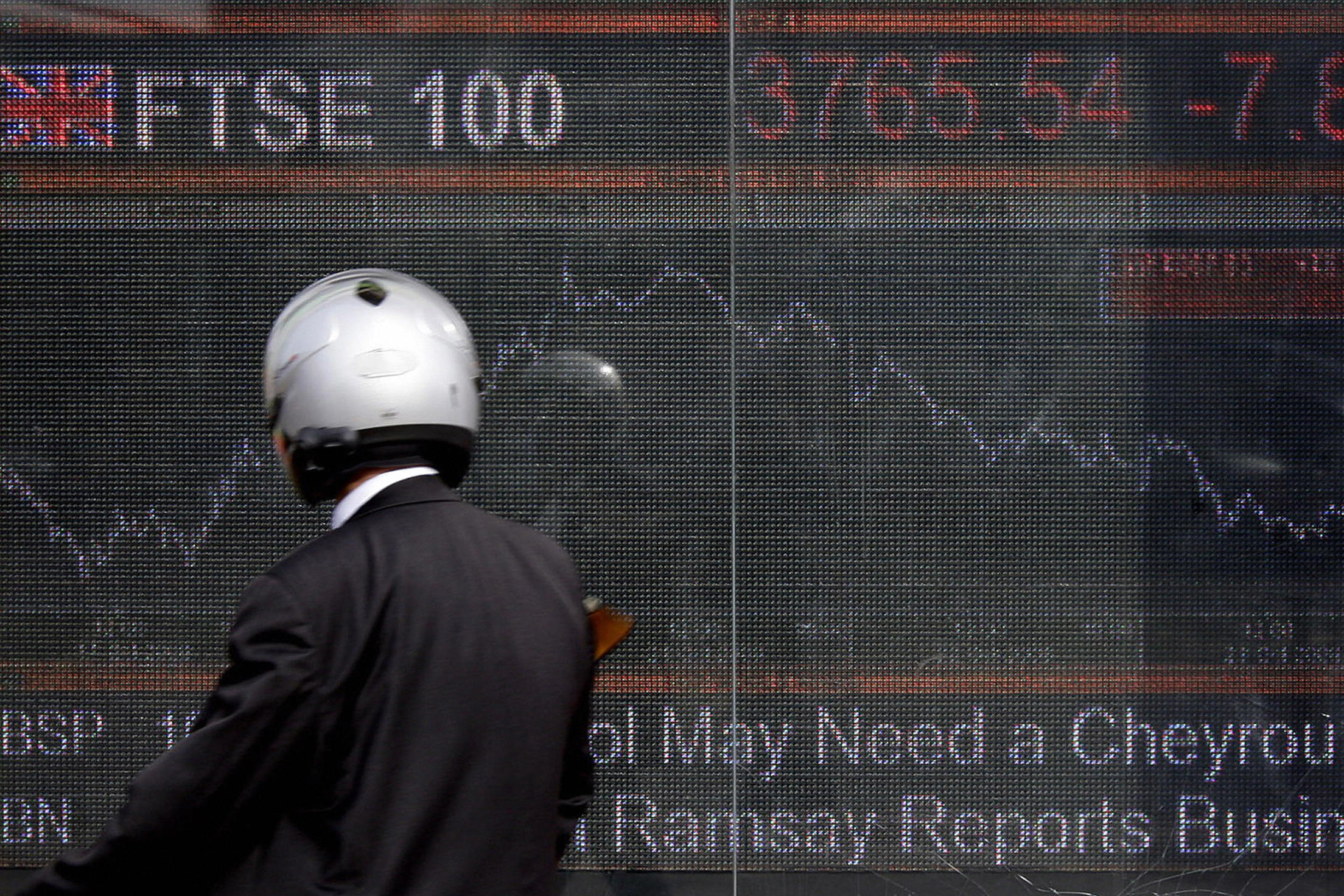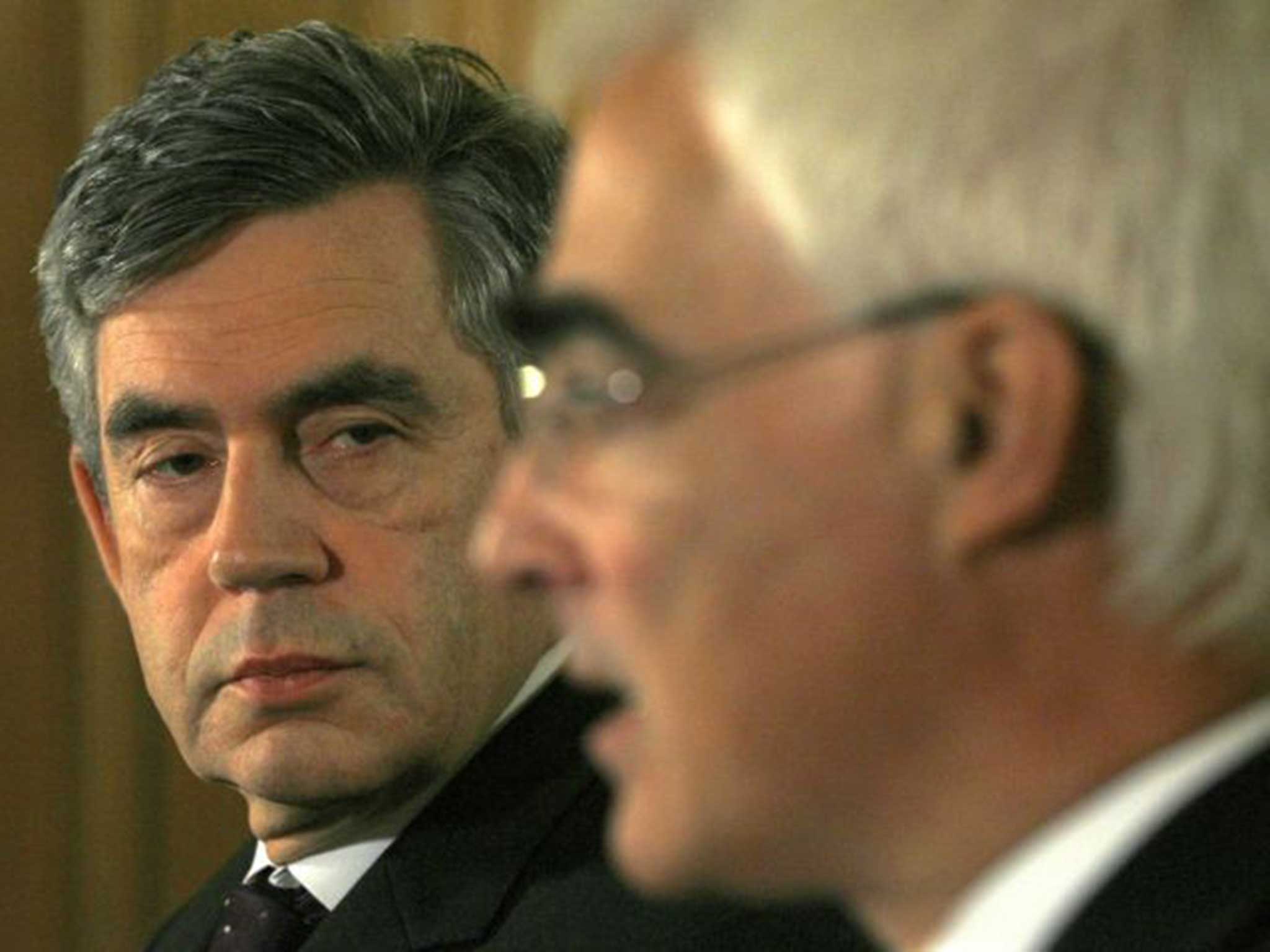Bankers still do not understand complex reasons behind financial crash, senior politician warns
Lord McFall, the former Treasury Select Committee chair, added: 'Households are saving the lowest proportion of their income since 1963. The Buy-to-let mortgage market has grown by more than £100bn since 2007'

Your support helps us to tell the story
From reproductive rights to climate change to Big Tech, The Independent is on the ground when the story is developing. Whether it's investigating the financials of Elon Musk's pro-Trump PAC or producing our latest documentary, 'The A Word', which shines a light on the American women fighting for reproductive rights, we know how important it is to parse out the facts from the messaging.
At such a critical moment in US history, we need reporters on the ground. Your donation allows us to keep sending journalists to speak to both sides of the story.
The Independent is trusted by Americans across the entire political spectrum. And unlike many other quality news outlets, we choose not to lock Americans out of our reporting and analysis with paywalls. We believe quality journalism should be available to everyone, paid for by those who can afford it.
Your support makes all the difference.Nearly 10 years on bankers still do not understand the complex derivatives behind the financial crash, a senior politician has warned as he urged to the financial sector to be “very cautious” about the future.
Lord McFall, the former chair of the influential Treasury Select Committee in Westminster, also warned that while the culture had changed at the top of the sector “we have to realise that memories in the financial services are very short”.
Speaking on BBC’s Radio 4 Today programme, he continued: “Households are saving the lowest proportion of their income since 1963. The Buy-to-let mortgage market has grown by more than £100bn since 2007. We all know that house prices in London remain very high."
Lord McFall, who called for “caution, caution, caution” from the financial services industry, added that what was missed by the banking sector and politicians in 2007 was the “interconnectedness and complexity” of the banking system.
“Let’s keep in mind, we’ve still got CDO’s – Collateral Debt Obligations – on books. Andy Haldane came to the New City agenda think-tank and made a speech saying if anyone wants to understand what a Collateralised Debt Obligation squared is they will have to go through one billion pages.
“The question is can we understand that? And until we have a better understanding…and by the way none of us understand it… then we have got to be very cautious about the future.”
Lord McFall’s comments come ten years after BNP Paribas – a French bank - announced it could not repay investors and marked the onset of ‘credit crunch’ in 2007 before the financial crash a year later.
Also speaking on Radio 4, the former Labour Chancellor Alistair Darling told of the “most scary moment” of the financial crisis as he received news of a run on RBS in a phone call in 2008.

He told the broadcaster: “I had to go to one of these meetings of European finance ministers, and I was asked to come out and take a call from the then chairman of RBS [Tom McKillop] who said the bank was haemorrhaging money.
”Remember this was not only the biggest in the world, it was about the same size as the entire UK economy.
“I said to him, 'How long can you last?' And what he said to me shook me to the core. He said, 'Well we're going to run out of money in the early afternoon'.”
He said there would have been “blind panic” had the Government chosen not to intervene and added the biggest danger regarding a future crisis was complacency.
“In a few years' time when institutional memories start to fade, and the people around have all gone and retired, then that's where the risk occurs,” he said.
Join our commenting forum
Join thought-provoking conversations, follow other Independent readers and see their replies
Comments